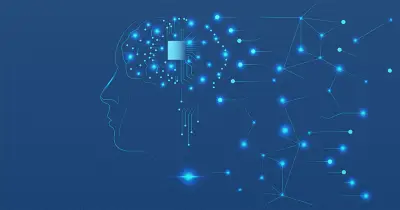The anti-AI movement is dangerously misguided

Although I take pride in being an early adopter I ll admit I didn t try ChatGPT until late a full year after its release I graduated from the University of Minnesota a month after it launched and spent the next year in a high-stress job I totally lacked the time or interest to try the latest fad When I in the end got around to it I wasn t sold GPT the default model at the time seemed limited and unreliable I needed a tool that could complete a task from beginning to end not a glorified essay writer whose information I couldn t trust without tedious fact-checking I saw parallels between the AI craze and other failed Silicon Valley experiments blockchain the metaverse and more How could companies break even given the tremendous cost of training models and building details centers Where was the economic value What was the environmental cost This skepticism is becoming increasingly common even as debates over the system have not fully broken into the mainstream It seems likely that anti-AI sentiment rather than AI optimism will become the default position over the next scant years and I expect calls to limit or ban AI expansion to become a political rallying cry Even in the present day a growing chorus of figures across the political spectrum accuse AI developers of destroying the atmosphere stealing work from writers and artists and being on the verge of failure There s an unsaid rule among multiple using AI is somehow morally wrong And yet despite my initial skepticism I find myself at odds with these feelings They seem to reflect a time when outdated models like GPT were the norm This perception isn t helped by the fact that the free default models the majority people use are designed to be cheap to run not state-of-the-art GPT OpenAI s default model stands out particularly for writing in a cliche and sycophantic style Insufficient consumers pay for premium access or spend hours learning the use cases for dozens of confusingly named models When entry-level models are your only experience with AI it s natural to feel as I once did that this is just another expensive environmentally harmful fad with little real value But AI has already crossed a threshold Advanced models are transforming productivity and even replacing certain tasks outright Copywriting is now within reach for anyone not just those who can afford professional writers Top-tier models can write and edit prose better than the greater part humans myself included Programmers are automating vast swaths of time-consuming work with Google s Gemini and Anthropic s Claude Three different experimental AI models in recent days earned a gold medal in the prestigious and hard International Mathematical Olympiad a feat that just a minimal weeks ago was widely assumed to be years away According to benchmarks AI is tackling increasingly complex tasks Where previous models could reliably complete tasks taking a human five minutes the latest systems can now handle work that takes over an hour This trend appears exponential by next summer an AI might reliably perform tasks that take a human a full day And the device isn t just rote it s showing promise in cracking novel problems in math and chemistry displaying genuine flashes of creativity and a deepening understanding of formal logic We don t need to worship AI but it s no longer reasonable to dismiss it as hype So what about the moral development against AI arguments about the environmental cost or intellectual property ownership Although I think there are solid arguments against both the quickest answer in favor of AI advance is to answer with a question What would a deliberate slowdown or outright resistance to AI literally achieve If you believe experts at the forefront of the field AI is poised to achieve human-level competency at greater part intellectual tasks within ten years While the general intelligence hype could stall like fusion potential has the bulk credible voices find a plateau unlikely even those without a vested interest The implications are obvious If this truly is the preponderance likely scenario then ensuring America wins the AI race becomes crucial Whoever first creates an AI that matches or outperforms humans at the bulk tasks will become the next global superpower corporate or national If you think this is a logical leap just imagine the sheer power yielded by any entity able to command millions of AI engineers hackers or scientists concurrently If a tech company becomes the sole owner of the first artificial general intelligence AGI system its CEO would instantly rival the president in power If a foreign adversary gets there first its influence would become unstoppable A unilateral domestic slowdown would likely cede the future to a foreign power or a corporation operating on foreign soil So despite growing skepticism it would likely be catastrophic to give into the temptation to legislate a halt or slowdown on AI enhancement at least within the next minimal years Such a agenda would best be suited for a scenario where it becomes clear that AI maturation has stalled Phil Ableidinger Continuing and even expanding our substantial commitment into artificial intelligence seems necessary at least for now We will have to play it by ear But accepting our need to continue accelerated AI evolution in the short term doesn t mean we should blindly accept the status quo While winning the AI race is key so is ensuring that the hardware benefits everyone not just a select scant AGI could discover drugs we can only imagine invent cutting edge sustainable potential machinery and more but we must ensure those gains are spread equitably not hoarded Rather than ban or stifle AI progress we must push for stringent citizens oversight If AI begins to supplant labor we must preemptively implement policies like a universal basic income so that mass job displacement doesn t become mass poverty And if AI s intelligence begins to converge on a human level or above we must consider a partial or even full nationalization of AI labs and figures centers The constituents deserves a say in the future Across all these areas a common thread emerges we must work to shape AI rather than cede its future We must embrace it even as we work to mitigate its risks We must ensure our approach objectives fit the moment whether AI progress continues exponentially or plateaus So let s step up and shape what comes next I m confident that we can create a better future together Phil Ableidinger is a law aspirant at the University of Minnesota and founder of the University s AI Law and Protocol group The post The anti-AI movement is dangerously misguided appeared first on MinnPost


